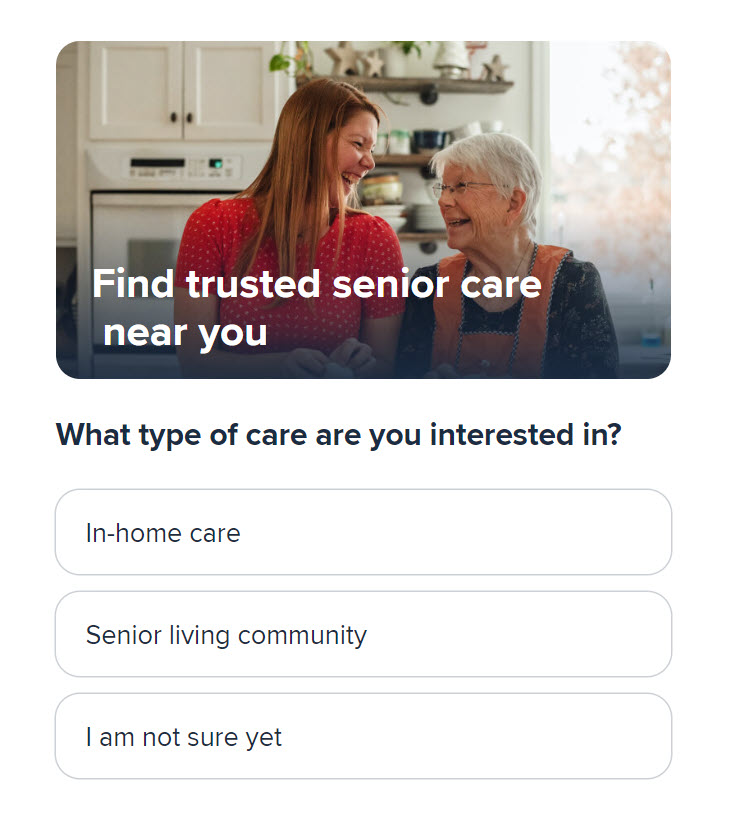
Home care is one of the fastest-growing industries in the United States. According to projections from the US Bureau of Labor Statistics, home care is on track to add more than 800,000 jobs by 2032. In other words, the employment opportunities in the home care industry are currently growing at a rate of 22%.
That’s good news for anyone currently working in home care. The expectation of adding that many jobs should give you a reasonable sense of job security.
If you’re just starting your own home care business or looking to expand your existing business, that’s good news for you, too. The rising demand for professionals in the in-home care industry is linked to a similar rise in the number of people who need the services they provide —AKA, your potential clients.
You probably already know that gaining clients is an important key to the success of your home care business. However, you might be uncertain about how to get private home care clients and how to enroll them. Maybe you aren’t even sure where to begin your search.
You’re in luck! In this article, we’ll walk you through the actions you can take today to find home care clients and get your business off the ground. For each action, we’ll also list a few great tips to guide you.
Create a Strategy
A solid, actionable business strategy is an essential component whether you’re launching your own home care business or opening an independent bookstore. At the end of the day, business is business—and planning is key.
The first imperative of creating a business strategy is to identify your specific areas of expertise. “Expertise” can mean several things. In the context of getting private home care clients, your expertise is a combination of three factors:
- Your credentials, such as degrees, licenses, and certificates you’ve earned, and your practical care experience
- The types of care you excel at providing
- The types of care you’re most passionate about
Whether it’s senior care, pediatric care, post-operative care, or specialized conditions, make sure you have a clear focus for your business. Additionally, make sure that your focus aligns with your professional credentials and your personal passions. This will help you narrow down your target audience or ideal patients and distinguish you from competitors.
Developing a strategy for marketing your business is next. A marketing strategy refers to everything you do to advertise and promote your business, from the specific methods you deploy, like email marketing, to the materials you’ll use. Without a marketing strategy, you might as well be throwing darts with a blindfold on and your back to the dartboard.
Clarity about who your target audience is and the specific care you plan to provide is crucial. From that information, you can research to determine the types of marketing materials you need and where you need to focus your efforts. With careful planning, you eliminate a lot of the guesswork and aim your darts in the right direction.
Build a Website
A functional and informational website is another necessary component of modern businesses. People often turn to internet search engines first when they’re in the market for a new healthcare provider. If you want to find private home care patients, you need to make it easy for them to find you.
That’s what your website is for—making important information about your home care business available to your target audience. You’ll use it to promote:
- Specific services
- Your qualifications and experience
- Your contact information
- Patient testimonials ads
If you have web design experience, you’ve got a leg up here. If you’re not confident in your abilities, consider hiring a designer to help you out. If cost is an issue, investigate free options for creating a website, such as WordPress, Weebly, or Wix.
Provide Excellent Care
In-home care, as in any other industry, reputation is important. When you’re trying to get private home care patients, word-of-mouth can either be the wind in your sails or leaks in your hull. Taking steps to ensure you always provide top-notch care is the best way to ensure that people say only good things about you.
Making a good impression is all about preparation. By enrolling in training courses or taking classes even after you’ve started your business, you guarantee that you continue to build skills and stay current on industry best practices. Other ways to ensure great care include:
- Listening to your client’s needs
- Being punctual and reliable
- Connecting with your client’s family members and keeping them updated (with your client’s permission)
Source Professional Referrals
If you’re just getting started with home care, you may not have a very large network of past or current patients who can vouch for you to potential clients. Understandably, that could complicate how you get private home care patients to hire you. Not many people are willing to entrust access to their home, to say nothing of their care needs, to a total stranger who lacks references.
If you don’t have clients who can verify your qualifications, professional home care referrals are your next best bet. To source referrals, look to:
- Home care referral services
- Third-party referral sites
- Former teachers or professors
- Professional acquaintances (who can speak to your qualifications)
Signing up with private home care registry sites is another way to source professional referrals. Home care registries can also make it easier for potential clients to find you. The Department of Social Services Home Care Aide Registry is an excellent place to start, as are websites like:

Pursue Volunteer Opportunities
Being an active member of your community through volunteering is another way to build a positive reputation. You’ll make community connections and get your name out there as someone who gives back, which can help build trust. Ideas for giving back and impacting your community include:
- Volunteering at homeless shelters or soup kitchens
- Organizing clothing drives and/or toy drives for needy families
- Organizing a blood drive
- Hosting a school supplies drive or another fundraiser for a school
- Organizing a park or beach clean-up
Any activity you can do that helps others and puts you in front of your local market is a great idea. Consider having T-shirts made, to wear and hand out at these events as well.
If you need help choosing a cause, connect with local schools, churches, food banks, and other organizations to determine the greatest need.
Sponsor Events
Sponsoring community events can boost your profile, raise awareness of services, and enhance your marketing efforts. As with volunteering, event sponsorship can help you establish yourself as a trustworthy and compassionate figure.
Being strategic in sponsoring events can put you in closer proximity to potential clients. For example, senior foot races or continuing education classes are great places to get in front of your target market.
While senior events should be a priority, don’t overlook other events. Even if seniors are not present, their children and grandchildren are. Therefore, sponsoring events for younger age groups can still plant your company’s name in the right people’s minds.
Book Speaking Engagements
Establishing professional credentials is a hurdle you must overcome to figure out how to get clients for non-medical home care businesses. One way to do that is by leveraging the knowledge and experience you already have.
For example, perhaps you have an impressive educational background in a related field, such as nutrition or social services. That kind of expertise is directly applicable to home care. Use it to your advantage. Get in touch with senior centers, retirement communities, assisted living facilities, churches, and your local Council on Aging to explore opportunities.
Event marketing, like speaking engagements, could be your opportunity to educate your market, put a friendly face to your company name, and give the audience a sense of the care they would receive from you.
Partner With Other Healthcare Professionals and Healthcare Businesses
Finding private home care patients is ultimately a question of marketing. If you’re wondering, “How do I market my home care business?” one answer is strategic partnerships.
Strategic partnerships are mutually beneficial relationships between organizations with shared or similar goals. They’re rooted in collaboration and commitment, with both parties dedicated to helping the other succeed. It’s a growing trend in home care. By forming strategic partnerships with like-minded companies, you can enhance your credibility and grow your business.
Look to the following types of organizations for opportunities to form strategic partnerships:
- Hospitals and clinics
- Physicians in private practice
- Senior living communities and nursing homes
- Pharmacies
- Adult daycare centers
- Social workers
- Nonprofits
Partner With Complementary Businesses
When you’re thinking about strategic partnerships, consider casting a wider net and exploring businesses that serve your target audience. Due to the overlap between your target audiences, you may be able to build a reciprocal referral relationship that benefits your business and theirs.
A referral relationship works like this: When you come across someone who can benefit from their services, you refer that person to the other business. In return, they send potential clients your way.
As a home care provider, consider businesses and organizations like:
- Medical supply stores
- Physical therapy centers
- Occupational therapy services
- Nutritionists/dietitians
- Home health equipment suppliers
Providers of mental health services, social services, and similar companies are also worth looking into. However, bear in mind that every time you refer someone, your reputation is on the line. If that person or business does not meet expectations, your reputation takes a hit. Be selective when choosing referral partners and vet each company before agreeing to a partnership.
Put Yourself in Front of Potential Clients
You might have an easier time getting clients for a medical home care business by putting yourself in front of potential clients. You can do that literally, by connecting with senior center employees or volunteers and brainstorming ways to spend time at such places.
For a less literal approach, consider placing ads that cater to your target audience in senior publications, local publications, or on social media. Your target audience may not be on Instagram or TikTok, but there are plenty of ways to creatively leverage social media marketing to get your brand in front of people who need your services for themselves or their family members.
Bonus: Obtain Necessary Certifications and Licenses
Be sure you meet all legal requirements and obtain the necessary certifications and licenses to operate your home care business. This inspires confidence in potential clients that you are a legitimate and reliable care provider.
Specific licenses and certifications may vary by state. Among the most common are:
- Home Health Care License: In most states, you’ll need to obtain a home health care license from your state’s Department of Health. The application process, required documents, and fees vary from state to state.
- State Registration or License: In most cases, you will need to register your business with your state’s Department of Revenue. Some states may require an in-person visit as part of the registration process. It could take several weeks to receive your certificate of registration or license, so plan ahead.
- Professional Caregiver Certification: You may need to complete a caregiving training course and obtain a professional certificate. Keep in mind, you may also be required to update your certification regularly with additional training courses.
- CPR and First Aid Certification: Training and certification in CPR and first aid may not be required in every state, but home care agents should be familiar with them. You can take training courses through the Red Cross, the American Heart Association, and the National CPR Foundation, among other organizations.
- Specific Certifications: If you plan on offering medical care, you may need special licenses or certifications, such as a Home Health Aide (HHA) certification or a Certified Nursing Assistant (CNA) license. If you aren’t sure of the requirements in your state, you should check with your Department of Health. You may also need to submit to certain health screenings.
- Background Checks: The Department of Health in your state may require a fingerprint criminal background check before you can start your home care business.
- Driver’s License and Auto Insurance: If you plan on using your vehicle to transport clients, make sure your driver’s license is current. You may also need to open a commercial auto insurance policy.
- Various Insurance Policies: You will likely need one or more insurance policies to protect yourself and your business, such as general liability insurance and business owner’s insurance.
- Bonding: Bonding protects clients in the event that their valuables are stolen or damaged by home caregivers. Not every state requires home care providers to be bonded. However, bonding can reassure your clients of your integrity and give them peace of mind.
Use These Strategies to Grow Your Home Healthcare Business
No matter where you are in your business journey, from researching how to start a private caregiver business to growing your client base, following these tips can speed you on your way. By defining your strategy, putting your name in front of your target market, being involved in the community, cultivating relationships, and providing quality care, you can achieve incredible growth results.




